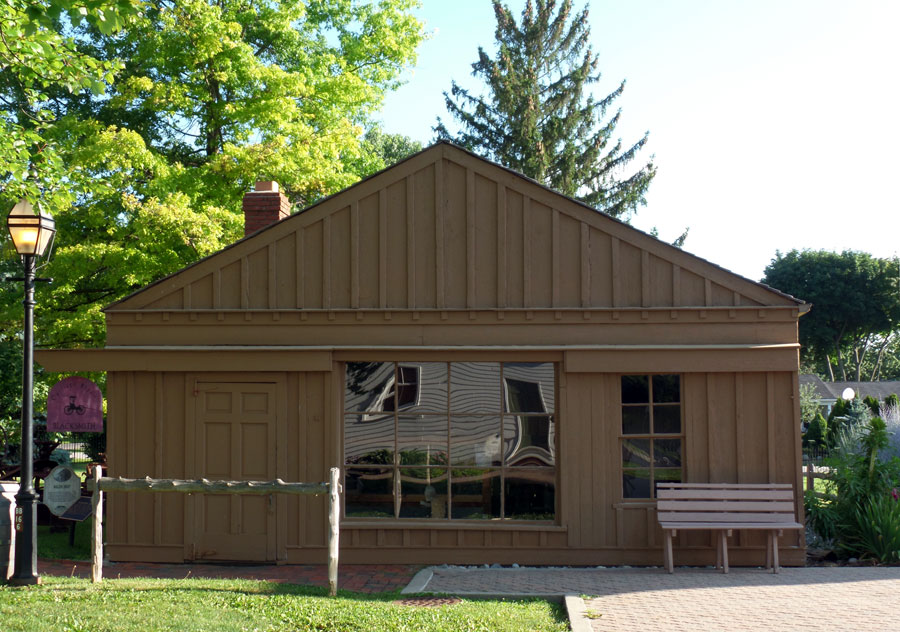
During the 1800s blacksmith shops were as common and as important as gas stations are today. This simple board and baton workshop was built at Troy Corners before the Civil War. Blacksmiths used the shop for decades. However, in 1947 the old building and adjacent farmstead became Gow’s Little Acre, a collection of popular antique and gift shops. In February 1972, fire destroyed the farmhouse and singed the old wagon shop. Five years later Alex Gow retired, sold the northwest corner to a developer, and donated the deteriorated wagon shop to the Troy Historical Society. The Society raised funds to relocate the building to the Village in February 1978. Today skilled artisans continue to shape metal and wood in the shop using centuries-old tools and techniques. Check out our Blacksmithing Classes! Experience the art of blacksmithing as it was in the 1850s. Work at the anvil, build a fire and operate the amazing forge. Discover how malleable hot iron can be as you learn eight basic hand forging techniques.
This small board and baton blacksmith shop was built prior to the Civil War on the northwest corner of Livernois at Square Lake Road. From 1947 to 1972 it was part of Gow’s Little Acre a popular antiques store and gift shop. Much of the business was destroyed by a fire in February 1972.
In 1977 Alex Gow retired, sold his property to a developer, and donated the dilapidated and scorched historic wagon shop to the Troy Historical Society. They raised the money to move it to the Village and restore it.
Volunteers built a brick forge and installed a set of bellows that date to the 1700s. In recent years hundreds of blacksmithing students have learned traditional skills and created new art through popular Blacksmithing and Coppersmithing classes.









